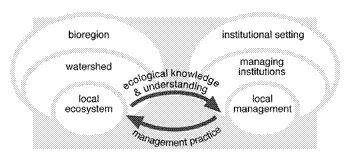List of systems scientists
- Ayrıntılar
A
- Russell L. Ackoff (1919) is an American scientist in the field of management science, operations research and systems theory.
- Genrich Altshuller (1926–1998) was a Russian engineer and scientist, and inventor of the Theory of Inventive Problem Solving.
- Pyotr Anokhin (1898–1974) was a Russian biologist and physiologist who made important contributions to cybernetics and functional systems.
- Leo Apostel (1925–1995) was a Belgian philosopher who advocated of interdisciplinary research between exact science and humanities.
- W. Brian Arthur (1945), is an Irish economist, is an expert on economics and complexity theory in technology and financial markets, and other applications.
- W. Ross Ashby (1903–1972) was an English psychiatrist and a pioneer field of complex systems.
B
- Per Bak (1948–2002) was a Danish theoretical physicist, to whom is attributed the development of the concept of self-organized criticality.
- Bela H. Banathy (1919–2003) was a Hungarian systems scientist, design scientist, educator, author and coordinator of many international systems research conferences.
- Béla A. Bánáthy (1946?) is an American systems scientist, who works at the International Systems Institute at the Saybrook Graduate School.
- Yaneer Bar-Yam (1959) is an American physicist, systems scientist and founding president of the New England Complex Systems Institute.
- Gregory Bateson (1904–1980) was a British anthropologist, social scientist, linguist, and cyberneticist whose work intersected that of many other fields.
- Kenneth D. Bailey (1943) is an American sociologist, who worked in the field of research methods, systems theory and environmental demography and ecology.
- Stafford Beer (1926–2002) was a British management scientist, known for his work in the fields of operational research and management cybernetics.
- Harold Stephen Black (1898–1983) was an American electrical engineer, who revolutionized the field of applied electronics by inventing the negative feedback amplifier in 1927.
- Alexander Bogdanov (1873–1928) was a Russian physician, philosopher, economist, science fiction writer, and revolutionary.
- Kenneth E. Boulding (1910–1993) was a British economist, educator, peace activist, poet, religious mystic, devoted Quaker, systems scientist, and interdisciplinary philosopher.
- Murray Bowen (1913–1990) was an American psychiatrist and pioneers of family therapy and systemic therapy.
- Valentino Braitenberg (1926) is German neurologist and cyberneticist and pioneer in embodied cognitive science.
- Richard Peirce Brent (1946) is an Australian mathematician and computer scientist who is known for Brent's method of root finding.
- Gerrit Broekstra (1941) is a Dutch scientist and professor of organizational behavior and systems sciences.
- Walter F. Buckley (1922–2006) was an American sociologist, and among the first to apply General systems theory to sociology.










